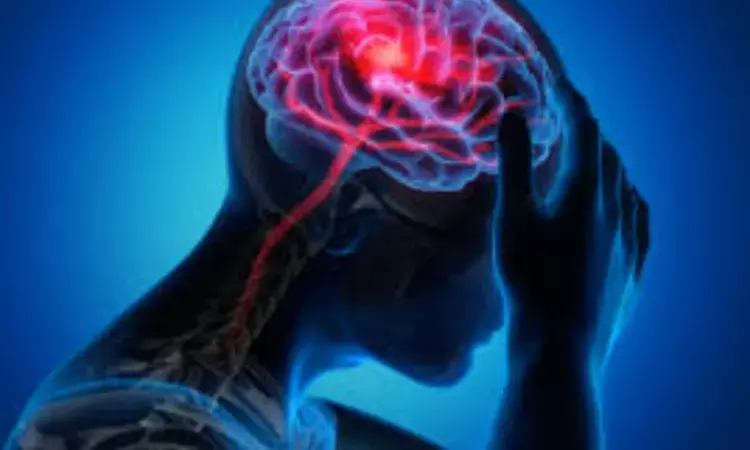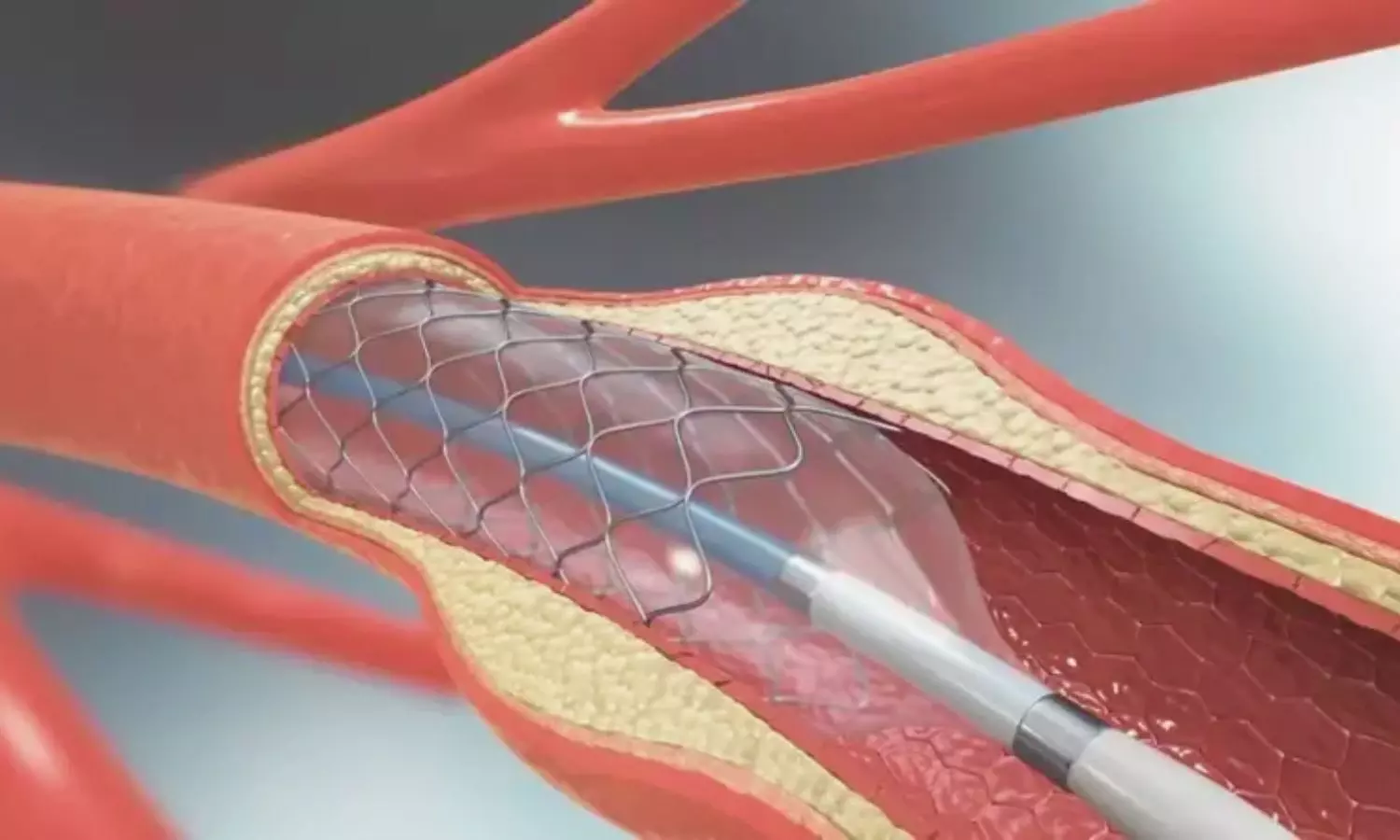- Home
- Medical news & Guidelines
- Anesthesiology
- Cardiology and CTVS
- Critical Care
- Dentistry
- Dermatology
- Diabetes and Endocrinology
- ENT
- Gastroenterology
- Medicine
- Nephrology
- Neurology
- Obstretics-Gynaecology
- Oncology
- Ophthalmology
- Orthopaedics
- Pediatrics-Neonatology
- Psychiatry
- Pulmonology
- Radiology
- Surgery
- Urology
- Laboratory Medicine
- Diet
- Nursing
- Paramedical
- Physiotherapy
- Health news
- Fact Check
- Bone Health Fact Check
- Brain Health Fact Check
- Cancer Related Fact Check
- Child Care Fact Check
- Dental and oral health fact check
- Diabetes and metabolic health fact check
- Diet and Nutrition Fact Check
- Eye and ENT Care Fact Check
- Fitness fact check
- Gut health fact check
- Heart health fact check
- Kidney health fact check
- Medical education fact check
- Men's health fact check
- Respiratory fact check
- Skin and hair care fact check
- Vaccine and Immunization fact check
- Women's health fact check
- AYUSH
- State News
- Andaman and Nicobar Islands
- Andhra Pradesh
- Arunachal Pradesh
- Assam
- Bihar
- Chandigarh
- Chattisgarh
- Dadra and Nagar Haveli
- Daman and Diu
- Delhi
- Goa
- Gujarat
- Haryana
- Himachal Pradesh
- Jammu & Kashmir
- Jharkhand
- Karnataka
- Kerala
- Ladakh
- Lakshadweep
- Madhya Pradesh
- Maharashtra
- Manipur
- Meghalaya
- Mizoram
- Nagaland
- Odisha
- Puducherry
- Punjab
- Rajasthan
- Sikkim
- Tamil Nadu
- Telangana
- Tripura
- Uttar Pradesh
- Uttrakhand
- West Bengal
- Medical Education
- Industry
Tenecteplase Viable Alternative to Alteplase for Acute Ischemic Stroke in Chinese Patients, reports research

A recent innovative multicenter study conducted in China has found that tenecteplase, a bioengineered variant of alteplase, is noninferior with excellent functional outcomes for acute ischemic stroke (AIS) when administered within 4.5 hours of symptom onset. The trial results were published in the journal JAMA Network. The trial, conducted between July 2021 and July 2023, involved 55 neurology clinics and stroke centers and provided significant evidence supporting tenecteplase as a viable alternative to alteplase, the current standard treatment for AIS.
Acute Ischaemic stroke is burdensome global disease. It is the third leading cause of death and disability globally and a leading cause of mortality in China. Alteplase is the standard of care for eligible individuals within 4.5 hours of onset of acute ischemic stroke and is administered as a bolus followed by a 1-hour infusion. Recently a bioengineered variant of the tissue plasminogen activator alteplase was developed called the Tenecteplase. It has the advantage of higher fibrin specificity and a longer half-life, allowing administration as a single intravenous bolus. However, the data on the efficacy of tenecteplase on AIS in China is meagre. Hence researchers conducted a trial to establish the noninferiority of tenecteplase to alteplase in patients with AIS within 4.5 hours of symptom onset.
The ORIGINAL study was a randomized, open-label, blinded endpoint, noninferiority trial aimed at determining whether tenecteplase could achieve similar treatment outcomes to alteplase. A total of 1489 patients were randomized, with 1465 patients. Among the total participants 732 receiving tenecteplase and 733 receiving alteplase were included in the full analysis. Participants were eligible for the study if they had AIS with a National Institutes of Health Stroke Scale (NIHSS) score between 1 and 25, measurable neurological deficit, and symptoms lasting at least 30 minutes without significant improvement. Randomization occurred within 4.5 hours of symptom onset.
Tenecteplase group received an intravenous dose of 0.25 mg/kg, while those in the alteplase group received 0.9 mg/kg. The study’s primary outcome was the proportion of patients achieving a modified Rankin Scale (mRS) score of 0 or 1 at 90 days, which reflects either no symptoms or no significant disability. The trial tested for noninferiority with a risk ratio (RR) margin of 0.937. Noninferiority would be established if tenecteplase’s effectiveness was close to or exceeded that of alteplase in terms of functional outcomes after stroke.
Results
- The trial results demonstrated the noninferiority of tenecteplase compared to alteplase.
- Among the tenecteplase group, 72.7% (532/732) achieved an mRS score of 0 or 1 at 90 days, compared to 70.3% (515/733) in the alteplase group.
- The risk ratio for this outcome was 1.03 (95% CI, 0.97-1.09), confirming that tenecteplase met the noninferiority threshold.
- Both tenecteplase and alteplase demonstrated a similar safety profile.
- Symptomatic intracerebral hemorrhage occurred in 1.2% of patients in both groups (9 patients each), with a risk ratio of 1.01 (95% CI, 0.37-2.70).
- Additionally, the 90-day mortality rate was slightly lower in the tenecteplase group (4.6%) compared to the alteplase group (5.8%), with a risk ratio of 0.80 (95% CI, 0.51-1.23).
The findings from the ORIGINAL study indicate that tenecteplase is noninferior to alteplase in terms of achieving excellent functional outcomes in patients with acute ischemic stroke. Moreover, tenecteplase showed a comparable safety profile and a slightly lower mortality rate. These results support the use of tenecteplase as a suitable alternative to alteplase for intravenous thrombolysis within 4.5 hours of stroke onset in Chinese patients. With its greater fibrin specificity and longer half-life, tenecteplase offers the added benefit of single-bolus administration, which could simplify stroke management in clinical settings.
Further reading: Meng X, Li S, Dai H, et al. Tenecteplase vs Alteplase for Patients With Acute Ischemic Stroke: The ORIGINAL Randomized Clinical Trial. JAMA. Published online September 12, 2024. doi:10.1001/jama.2024.14721
BDS, MDS
Dr.Niharika Harsha B (BDS,MDS) completed her BDS from Govt Dental College, Hyderabad and MDS from Dr.NTR University of health sciences(Now Kaloji Rao University). She has 4 years of private dental practice and worked for 2 years as Consultant Oral Radiologist at a Dental Imaging Centre in Hyderabad. She worked as Research Assistant and scientific writer in the development of Oral Anti cancer screening device with her seniors. She has a deep intriguing wish in writing highly engaging, captivating and informative medical content for a wider audience. She can be contacted at editorial@medicaldialogues.in.
Dr Kamal Kant Kohli-MBBS, DTCD- a chest specialist with more than 30 years of practice and a flair for writing clinical articles, Dr Kamal Kant Kohli joined Medical Dialogues as a Chief Editor of Medical News. Besides writing articles, as an editor, he proofreads and verifies all the medical content published on Medical Dialogues including those coming from journals, studies,medical conferences,guidelines etc. Email: drkohli@medicaldialogues.in. Contact no. 011-43720751




